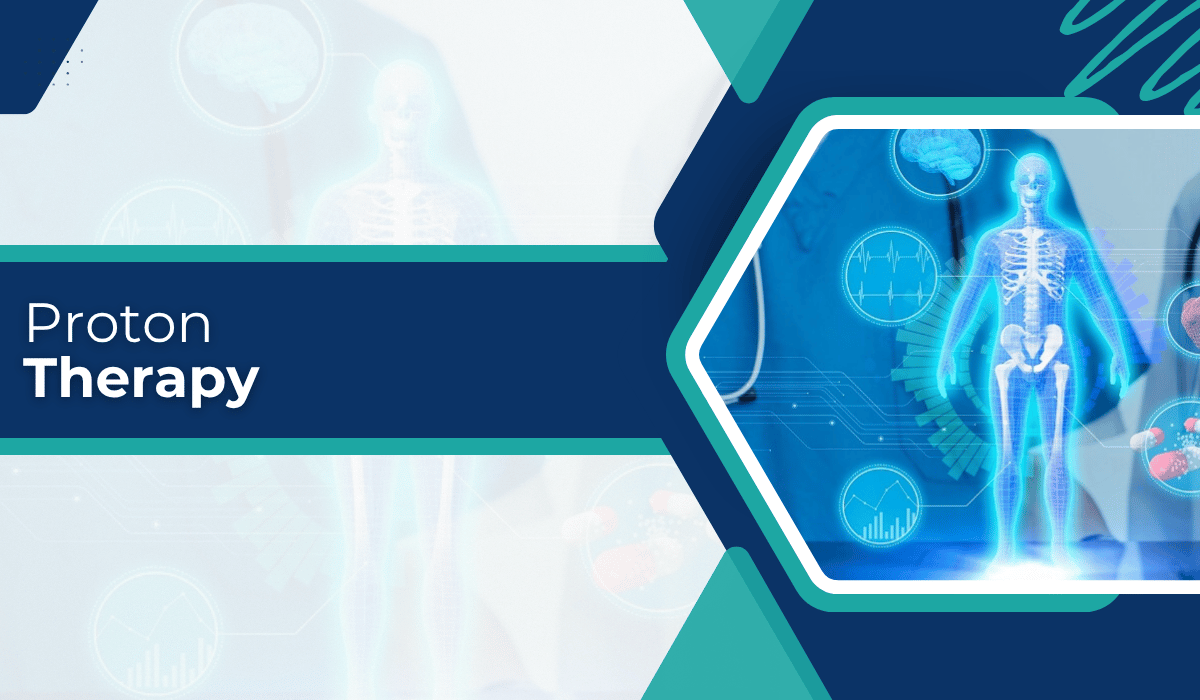Proton Therapy in Turkey

Proton therapy in Turkey connects international patients with accredited clinics that deliver precise, advanced care for selected cancers and complex tumors. DGS Healthcare coordinates personalized treatment plans, travel logistics, and a clear cost estimate so you can focus on recovery.

About Proton Therapy in Turkey
Proton therapy in Turkey is an advanced form of radiation therapy that uses focused proton beams to treat cancer and certain benign tumors. Unlike conventional X-ray treatment, proton therapy lets clinicians concentrate dose at the tumor while reducing radiation to surrounding healthy tissues — a key advantage when treating tumors near critical structures.
How it differs: protons are charged particles accelerated into a beam that deposits most of its energy at a controllable depth (the Bragg peak), so less dose reaches tissue beyond the target compared with many X-ray techniques. Clinical studies and treatment-planning comparisons show lower integral dose and reduced exit dose for selected tumors versus IMRT, which can translate to fewer long-term effects for some patients.
Personalized care: every patient’s plan is individualized. A multidisciplinary oncology team — including radiation oncologists, medical oncologists, surgeons and radiologists — evaluates which patients will benefit most from proton therapy. See if you are a candidate — request a free case review.
Who typically benefits: patients with tumors close to critical organs (brain, spinal cord, base of skull), certain pediatric cancers where sparing healthy tissue is critical, and cases where prior X‑ray radiation limits retreatment options. Treatment decisions are made case-by-case based on tumor type, location, patient health, and evidence-based guidelines.
Proton Therapy Procedure in Turkey
Proton therapy (also called proton beam therapy) uses accelerated protons to deliver radiation precisely to a tumor while sparing nearby healthy tissues and critical organs. By adjusting proton energy, clinicians place the Bragg peak — the point of maximal energy deposition — inside the tumor so dose beyond the target is minimized. This targeted dose distribution is the main physical advantage over many conventional radiation therapy techniques.
Proton therapy in Turkey treats both malignant and some benign tumors in adults and children. In pediatric oncology, proton therapy is increasingly used because sparing healthy tissue can reduce the risk of growth and developmental side effects later in life. Clinical evidence suggests similar tumor-control rates to conventional radiotherapy for many diagnoses, with the potential for fewer long-term effects in selected cases.
For adults, proton therapy is most useful when tumors are near sensitive structures — for example, tumors at the base of the skull, deep brain lesions, or spinal tumors close to the spinal cord. It is commonly delivered as part of a combined treatment plan; many patients also receive surgery and/or chemotherapy when indicated.
How Does Proton Therapy Work in Turkey?
Protons are generated by separating hydrogen atoms and accelerating the charged particles in a cyclotron or synchrotron. Modern delivery systems use a rotating gantry to aim a narrow beam at the tumor from multiple angles. Advanced techniques such as pencil-beam scanning shape the dose to three-dimensional tumor contours, often with beamlets a few millimeters wide, to spare surrounding tissues.
The proton beam damages tumor DNA, preventing cancer cells from repairing and dividing. Tumor shrinkage and symptom relief vary by cancer type, size, and location. (For detailed clinical guidance see major society statements such as ASTRO/ESTRO reviews.)
Proton Therapy Process in Turkey
Typical workflow (high level):
- Referral and multidisciplinary review — radiation oncologist, medical oncologist, surgeon, and radiologist review imaging and pathology to confirm candidacy.
- Simulation and planning — a CT scan (often fused with MRI/PET) maps tumor size and location for precise planning.
- Treatment delivery — daily or alternate-day proton beam sessions lasting typically 20–30 minutes in the treatment room; total course length depends on tumor type and fractionation.
- Follow-up — periodic imaging and clinical reviews assess response and monitor for side effects.
During delivery, staff monitor you from a control room and maintain audio/visual contact. You should not feel the proton beam. If sedation is needed (commonly used for young children), recovery time may extend the appointment visit.
Benefits of Proton Therapy in Turkey
Compared with many X-ray techniques, proton therapy can:
- Reduce radiation exposure to healthy tissues and critical organs, which may lower the risk of some long-term side effects and subsequent malignancies in selected patients.
- Allow dose escalation to the tumor in some cases, potentially improving local control while still protecting nearby tissues.
- Provide an option for retreatment when prior X‑ray radiation limits further conventional therapy.
- Offer particular advantages in pediatric cancers where sparing healthy tissue is crucial for growth and development.
Note: published comparisons report variable percentage reductions in healthy-tissue dose depending on tumor site and technique; these advantages are generally demonstrated in treatment-planning studies and selected clinical series rather than across all tumor types.
What are the Differences Between Proton Therapy and Radiation Therapy?
In many cases proton therapy deposits less dose outside the target compared with standard X-ray approaches (such as IMRT). Standard X-ray beams have an “exit dose” beyond the tumor; protons stop at the Bragg peak, so there is minimal exit dose beyond the target. This physical difference can allow better protection of healthy tissue and critical organs when clinically appropriate.
However, proton therapy is not automatically superior for every patient or every tumor type; the decision depends on individual anatomy, tumor biology, prior treatments, and multidisciplinary clinical judgment. Ask for a case review to understand the best option for your situation.

Cancers Treated with Proton Therapy in Turkey
Proton therapy in Turkey is used to treat selected cancers and certain benign tumors. It can be delivered as a standalone treatment or combined with surgery and/or chemotherapy. Because proton therapy limits radiation exposure to healthy tissues, it is particularly useful when a tumor lies close to critical organs or when prior radiation constrains further X‑ray treatment options.
Common indications (examples):
- Brain tumors — skull-base and deep-seated lesions where sparing healthy brain tissue is critical.
- Cancer in children — pediatric tumors (e.g., medulloblastoma, ependymoma) where reduced dose to developing tissues can lower long-term effects.
- Head and neck cancers — tumors near the optic structures or brainstem.
- Prostate cancer — considered for some patients as an alternative to photon-based radiotherapy, depending on clinical factors.
- Eye melanoma — local control with tissue-sparing techniques.
- Spinal tumors — tumors affecting or close to the spinal cord.
- Base-of-skull tumors — chordomas and other complex lesions where precision is essential.
- Sarcoma — selected soft-tissue and bone sarcomas, especially in anatomically challenging sites.
- Lymphoma, lung, pancreatic, esophageal — may be considered in select cases or within clinical protocols; suitability depends on tumor biology and multidisciplinary assessment.
Each tumor type has specific evidence and guideline recommendations; for example, proton therapy is widely accepted for certain skull-base chordomas and many pediatric CNS tumors. For other cancers (breast, pancreatic, lung, lymphoma), the role of protons is more nuanced and often evaluated case-by-case in multidisciplinary review or clinical trials.
Who should consider proton therapy?
- Patients with tumors located near critical organs (brain, spinal cord, optic apparatus).
- Children and young adults where long-term toxicity and secondary malignancy risk are a concern.
- Patients who previously received X‑ray radiation and need retreatment in the same area.
- Cases where dose escalation may improve local control but photon techniques cannot safely deliver higher dose.
Recovery from Proton Therapy in Turkey
Many patients resume normal activities the same day as treatment. Early symptomatic improvements can appear within weeks, though measurable tumor shrinkage often takes longer and depends on cancer type and biology. Common acute effects include localized skin irritation (sunburn-like redness) and fatigue; long-term side effects vary by tumor site and dose.
Adults typically do not require general anesthesia and can travel to appointments; children may need sedation or anesthesia to remain still during sessions and may require additional recovery time.
If you’d like a personalized assessment of whether proton therapy may suit your case, request a free consultation and our oncology team will review your records.
2025 Cost of Proton Therapy in Turkey
Proton therapy treatment costs vary by diagnosis, complexity of planning, number of sessions, and whether additional services (surgery, chemotherapy, anesthesia, imaging) are required. In 2025, Turkey remains a cost-competitive destination for proton therapy compared with prices in the United States and the UK, while offering multidisciplinary oncology care and travel support.
Approximate international comparison (illustrative ranges):
Price of Proton Therapy in the UK?
Typical range in the UK: £30,000–£50,000 (dependent on complexity and included services).
Price of Proton Therapy in the USA?
Typical range in the USA: $50,000–$120,000 depending on center and inclusions.
Price of Proton Therapy in Turkey?
Estimated range in Turkey: $10,000–$15,000 for many standard courses — exact cost depends on tumor type, number of sessions, imaging and planning requirements, anesthesia (for children), and whether surgery or chemotherapy are also needed.
Prices are indicative and vary by case. Contact us for a personalized quote that details what is included (consultation, CT/MRI planning, number of fractions, hospital fees, accommodation and transfers if part of a package).
Why Choose Turkey for Proton Therapy?
Turkey is an attractive option for international patients because many centers combine high-quality clinical care, modern proton technology, and competitively priced packages. Major cities such as Istanbul, Ankara and Antalya host advanced oncology clinics and hospitals offering multidisciplinary teams and supportive services for medical travel.
- Quality and accreditation: many hospitals maintain international standards; verify JCI accreditation or center-specific credentials when choosing a clinic.
- Experienced teams: treatment is delivered by specialist doctors, medical physicists and radiation therapists experienced in proton planning and delivery.
- Affordability and packages: bundled packages can include consultations, planning scans, clinic transfers, accommodation and follow-up care, reducing overall travel complexity and cost.
What a Typical Package May Cover
- Initial medical review and multidisciplinary planning.
- CT/MRI simulation and individualized treatment planning by an oncology team.
- Daily proton therapy sessions for the prescribed number of fractions.
- Hospital fees, basic nursing care, and outpatient follow-up (confirm specifics with your package).
- Optional services: VIP transfers, accommodation bookings, translation, and assistance with travel logistics.
Note: Some services (advanced imaging, specialist consultations, extended hospital stays, or additional treatments) may be charged separately. Always request a written quote listing included and excluded items.
If you want a precise, case-specific cost breakdown or to learn which hospitals and clinics currently offer proton services and meet your clinical needs, request a free eligibility review — our team will confirm availability, expected costs, and any legal or regulatory considerations for treatment.
Proton Therapy in Turkey is subject to national regulations and center availability; we recommend confirming current local approvals and the operational status of specific proton centers when planning care.

